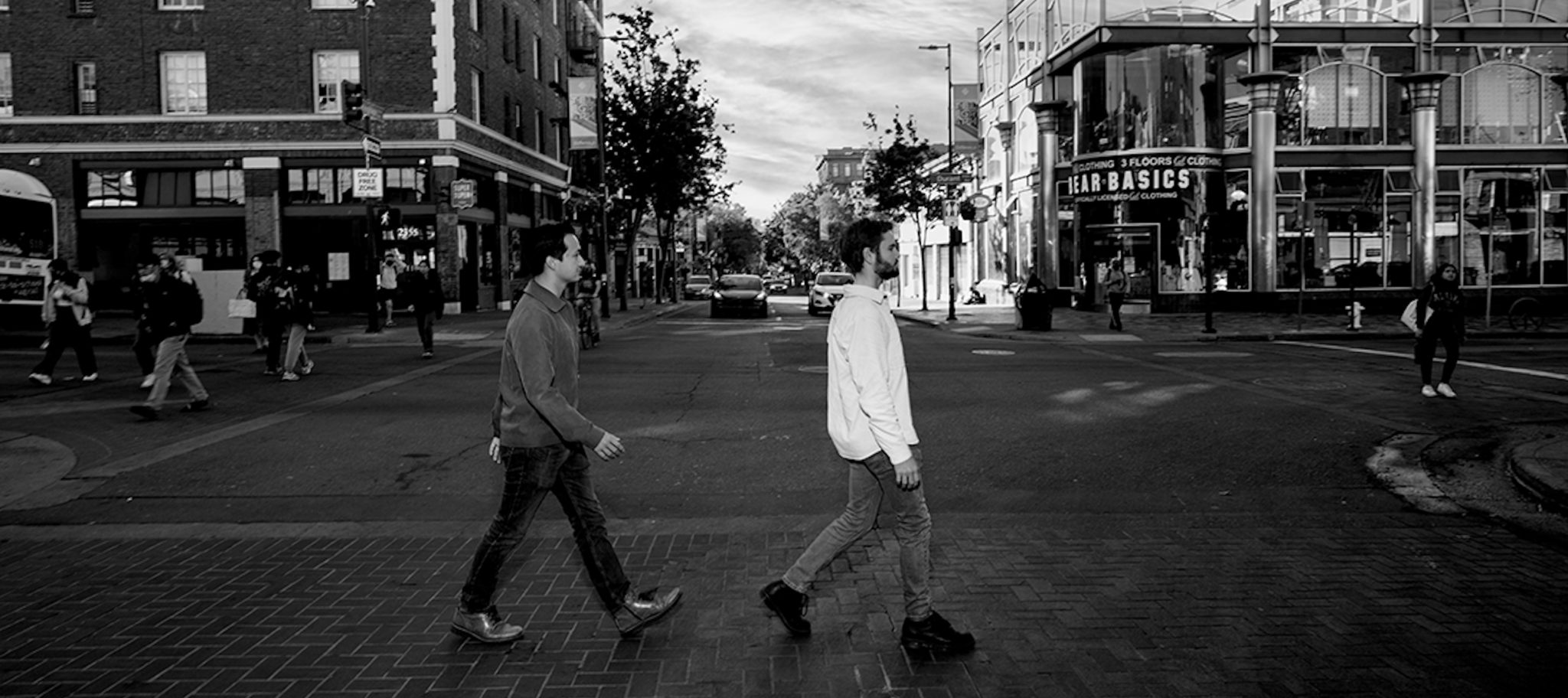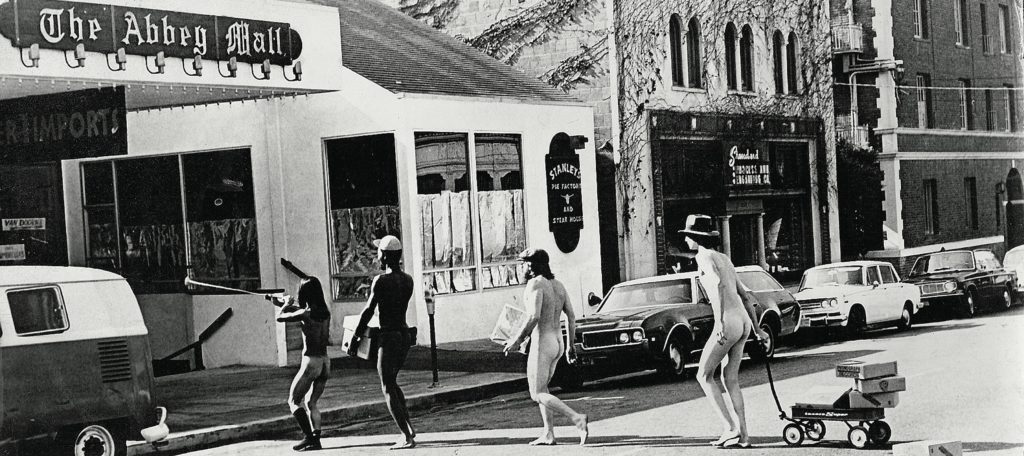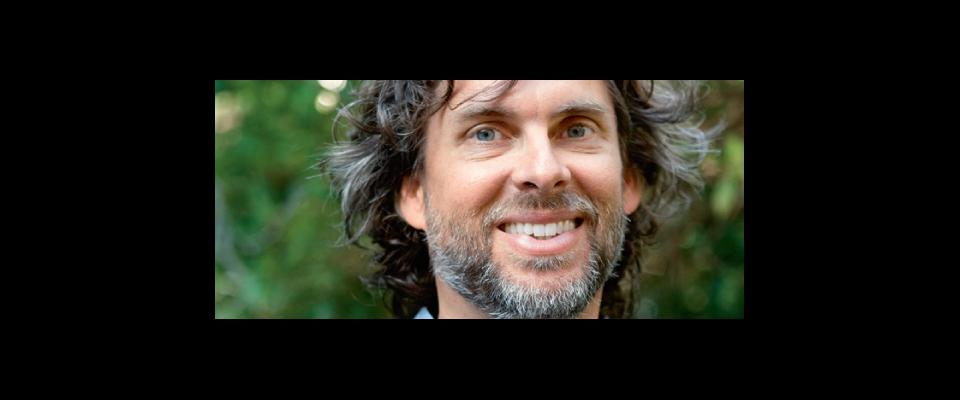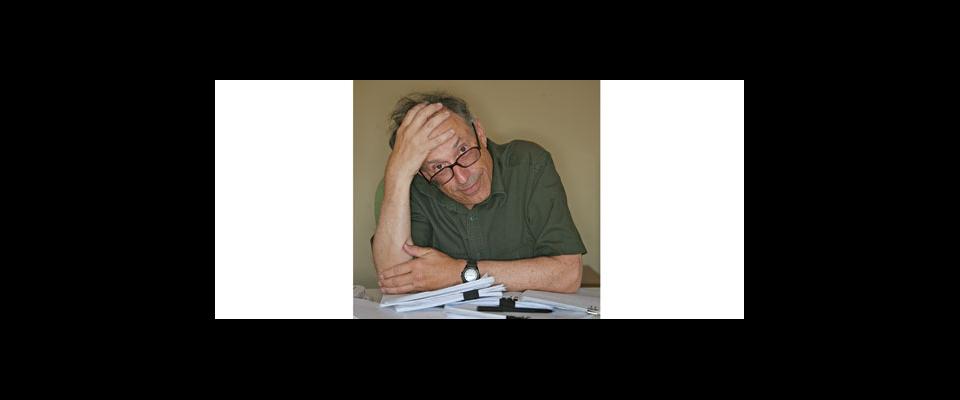On a Sunday in September, Telegraph Avenue looked a little different. A rock wall, a mechanical bull, and an ax-throwing stand took the place of cars between Haste and Durant. There was a Wipeout-style carnival ride next to Rasputin, the record store, and further up the block, kids skateboarded while students browsed jewelry pop-ups in the street.
This Telegraph street fair, which takes place the second Sunday of each month, is a glimpse of the iconic street’s potential future, a permanently “car-free Telegraph” that councilman Rigel Robinson ’18 and the Berkeley student group Telegraph for People have long advocated for.
“Right now, you cannot pleasantly walk down Telegraph Avenue without bumping into people,” Sam Greenberg ’22, cofounder of Telegraph for People, said. Berkeley has the fourth-highest share of bicycle commuting in the country, and 84 percent of students walk or bike to school. A car-free Telegraph, supporters say, would make their commute more enjoyable and give restaurants and stores room for outdoor dining or to show off merchandise, as well as provide more space for the street vendors that often populate the area.
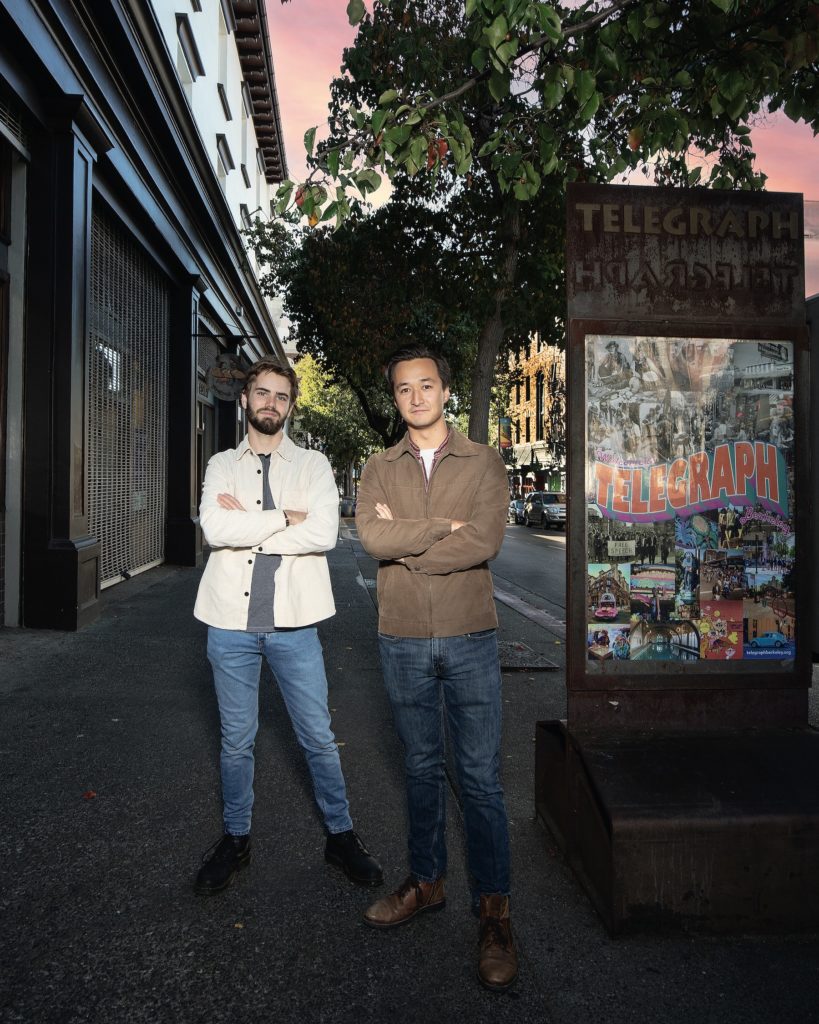
“Redesigning Telegraph Avenue has been my most pathological fixation since I came into office,” Robinson said. Greenberg and his cofounder, Brandon Yung ’22, developed “Option Five,” a plan that recommends a four-block pedestrian plaza with a dedicated bus lane. In February 2022, the Berkeley City Council supported Robinson’s recommendation to begin exploring the idea.
Originally stretching all the way to Sather Gate, Telegraph not only leads people to the campus but is itself a destination. Its record stores, bookshops, and cheap eateries define the culture of the area. And, of course, it has been the site of social change for decades: The corner of Bancroft and Telegraph was the locus of the Free Speech Movement in 1964, and in 1969, students and community members marched down the street to “take back” People’s Park, a scene that has since been repeated several times.
It may come as no surprise, then, that a carless Telegraph isn’t a new idea. At the same time as the 1969 protest, a group known as the Berkeley Liberation Program called for Telegraph to be a “strategic free territory for revolution.” There was talk of shutting down car traffic near campus to create “places for music and meandering.” In 1998, a group called Reclaim the Streets took over Telegraph to protest the tyranny of the automobile. “Cars don’t rule the streets, People Do” read one sign.
In March, Telegraph for People did the same thing.
“We wanted to remind people what we were fighting for,” said Greenberg. “We wanted to prefigure Telegraph into a space for people.” The students took over the block of Telegraph between Durant and Bancroft for several hours, chanting, playing party music, and hula-hooping. People from the community came too, including one family who had a picnic just feet from cars. When the bus came through, the crowd cheered and “parted like the Red Sea,” said Robinson. But no private automobiles were allowed to pass.
While public support seems enthusiastic, some business owners are concerned. Doris Moskowitz, who runs Moe’s Books, the bookstore her father founded, is worried that banning cars on Telegraph would prevent people from bringing books to sell. “Eighty percent of what we have are used books, and they really do come from the community, but who would carry heavy books here on a bicycle?” Moskowitz told SFGate. The Telegraph Business Improvement District has also expressed disapproval, saying that the measure didn’t have “clear interest or support from our merchants and district stakeholders.”
Some store owners, however, are less bothered. Vivi Nguyen, manager of the thrift shop Mars Mercantile, doesn’t see it affecting her business. “Telegraph has already been an established place for people to come,” she said.
Berkeley Mayor Jesse Arreguín agrees. “I think it’s going to be a draw. I think it’s going to bring more people to Telegraph. Telegraph is already one of our busiest commercial districts, but I think it’s going to really make it a destination,” Arreguín told ABC7 News.
Meanwhile, a larger movement for car-free streets is growing after the pandemic introduced “slow streets” all over the Bay Area. John F. Kennedy Drive in Golden Gate Park is now permanently closed to car traffic after a century-long fight against automobiles in the park. Across the country, college towns like Burlington, Vermont, and Charlottesville, Virginia, have pedestrianized main streets. And sections of Times Square in New York City have been car-free since their transition to pedestrian plazas in 2009.
“Americans love visiting cities like Paris and Madrid because the cities are so beautiful and it’s such an intuitive and charming and natural experience to explore these paved places as a pedestrian,” Robinson explained. “And that’s a little of what I think we’re missing in a lot of American cities.”
He adds: “I dream that someday, the organization Telegraph for People will find itself having an identity crisis and a branding crisis because its name is out of date, because they won the project on Telegraph Avenue.”











